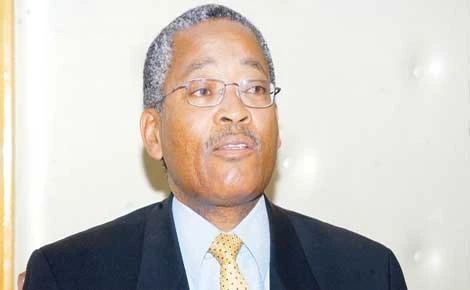The Modern Digo Traditional Authority, represented by Cabinet Minister Ambassador Chirau Ali Mkwawere as the spokesperson for the Digo community in Kwale County, marks a significant development in the community’s efforts to navigate the complexities of modern society while preserving its rich cultural heritage. The establishment of the Ngambi as the modern traditional authority symbolizes a pivotal moment in the history of the Digo people, signaling a renewed commitment to cultural preservation, collective governance, and fostering enduring peace within the community.
Cultural Heritage and Identity
For the Digo community in Kwale County, maintaining their cultural heritage is paramount amidst the pressures of globalization and modernization. The Digo people have a distinct cultural identity characterized by their language, traditions, music, and spiritual beliefs. The role of Cabinet Minister Ambassador Chirau Ali Mkwawere as the spokesperson highlights the community’s determination to uphold and promote these cultural practices in contemporary times. By embracing their heritage, the Digo seek to preserve their identity while adapting to the evolving socio-economic landscape.
Leadership and Representation
Ambassador Chirau Ali Mkwawere’s role as the spokesperson for the Digo community brings leadership and representation to the forefront of their cultural initiatives. As a Cabinet Minister, his position provides a platform to advocate for Digo interests at national and international levels, ensuring that their voice is heard in matters affecting their community. His leadership underscores a commitment to promoting unity, progress, and empowerment among the Digo people, bridging traditional authority with modern governance structures to address community needs effectively.

Historical Context and Evolution
The establishment of the Ngambi as the modern traditional authority for the Digo community builds upon a rich historical context of governance and community organization. Historically, traditional leaders played vital roles in mediating disputes, preserving cultural norms, and guiding community development. In contemporary times, the Ngambi represents a modern adaptation of these traditional roles, incorporating democratic principles, accountability, and inclusivity in decision-making processes. This evolution reflects the Digo community’s resilience and adaptability in navigating the complexities of modern governance while honoring their ancestral heritage.
Governance and Collective Decision-Making
Central to the Ngambi’s role is promoting collective governance and fostering unity among the Digo people. Through inclusive decision-making processes, the modern traditional authority engages community members in shaping policies and initiatives that uphold cultural values and promote socio-economic development. This participatory approach ensures that diverse perspectives are considered, enhancing transparency and accountability within the community leadership. By empowering local stakeholders, the Ngambi strengthens community cohesion and resilience in the face of external pressures.
Challenges and Opportunities
Navigating the complexities of modern society presents both challenges and opportunities for the Digo community and its traditional authority. Economic pressures, demographic shifts, and environmental changes pose challenges to cultural preservation and sustainable development. However, these challenges also stimulate innovative approaches to governance, economic empowerment, and environmental stewardship. The Ngambi seeks to harness these opportunities by promoting educational initiatives, sustainable livelihoods, and cultural revitalization projects that empower the Digo youth and safeguard their cultural legacy for future generations.
Cultural Preservation and Education
The Ngambi plays a crucial role in promoting cultural preservation and education among the Digo community. Initiatives focused on language revitalization, traditional craftsmanship, and oral history transmission are prioritized to ensure the continuity of cultural knowledge and practices. Educational programs that integrate traditional values with modern curriculum empower Digo youth to embrace their heritage while acquiring skills for success in contemporary society. By investing in cultural education, the Ngambi fosters pride in Digo identity and strengthens community resilience against cultural erosion.
Peacebuilding and Conflict Resolution
Promoting enduring peace within the Digo community is a fundamental objective of the Ngambi’s leadership. By fostering dialogue, mediation, and reconciliation, the traditional authority addresses intra-community disputes and promotes harmony among diverse groups. Cultural ceremonies and communal gatherings serve as platforms for fostering understanding and unity, bridging generational and socio-economic divides. Through proactive peacebuilding initiatives, the Ngambi contributes to social cohesion, stability, and collective well-being within Kwale County.
Economic Development and Sustainability
Economic development and sustainability are integral to the Ngambi’s vision for the Digo community’s future. By leveraging natural resources, promoting agricultural innovation, and supporting small-scale enterprises, the traditional authority stimulates local economic growth and reduces dependency on external aid. Initiatives that prioritize environmental conservation and sustainable practices ensure the long-term viability of livelihoods and ecosystems in Kwale County. The Ngambi collaborates with governmental, non-governmental, and private sector partners to implement initiatives that promote economic resilience and social equity.
Future Prospects and Community Empowerment
Looking ahead, the Ngambi envisions a future for the Digo community defined by resilience, empowerment, and cultural vitality. By fostering partnerships, promoting good governance, and advocating for policies that prioritize cultural heritage, the traditional authority positions the Digo people for sustainable development and inclusive growth. Strengthening community institutions, investing in youth leadership, and embracing technological advancements are key strategies for navigating future challenges and seizing opportunities for progress. Through collective effort and visionary leadership, the Digo community and its modern traditional authority continue to chart a course towards a prosperous and culturally vibrant future.
By exploring these dimensions of the Modern Digo Traditional Authority and its spokesperson, Cabinet Minister Ambassador Chirau Ali Mkwawere, we gain insight into the dynamic interplay between tradition and modernity in Kwale County, Kenya.